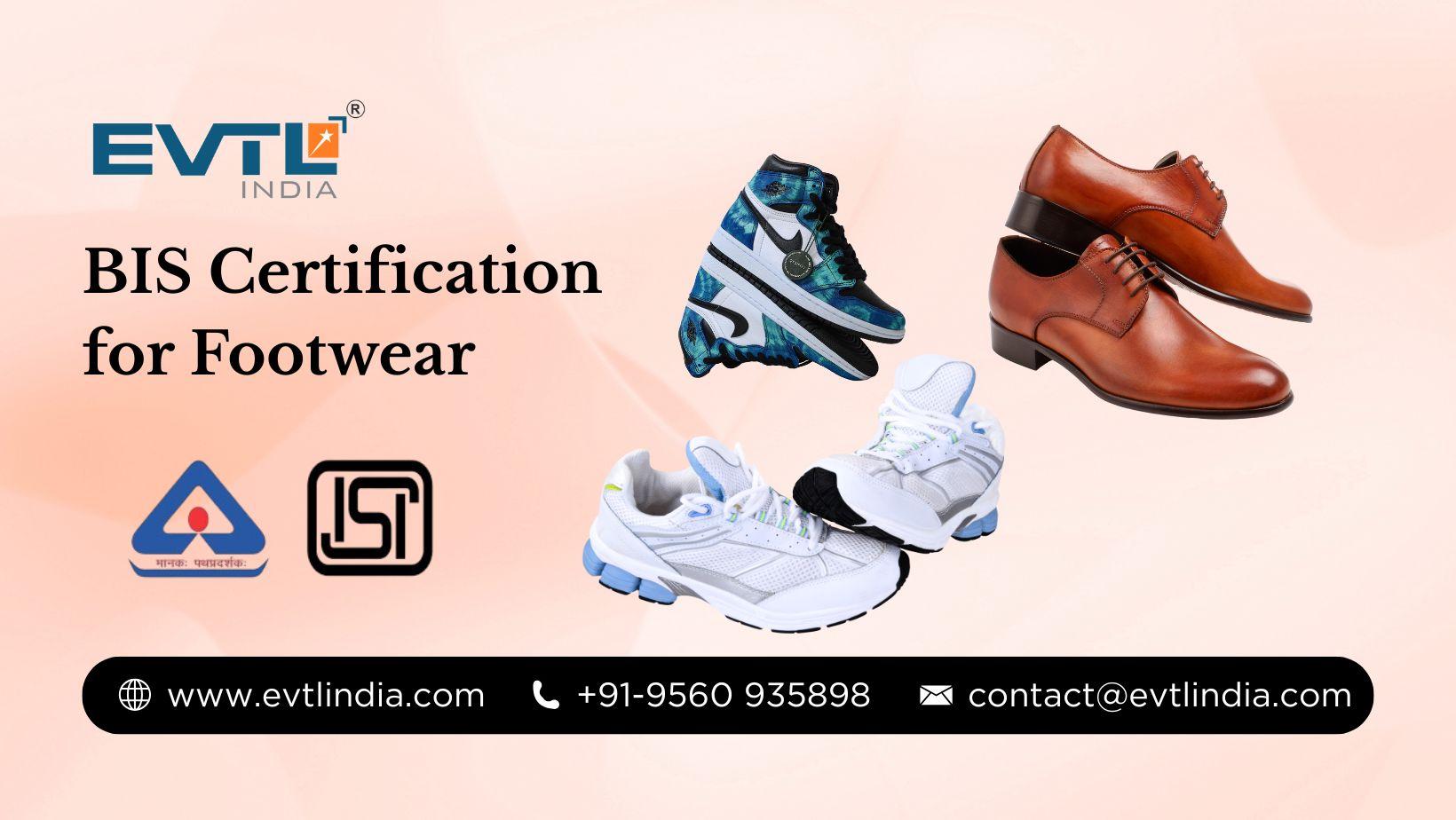BIS for Footwear: Ensuring Quality and Safety for All

Footwear is not just about style; it’s also about comfort, protection, and quality. In India, the BIS for Footwear plays an important role in making sure that shoes, sandals, and boots meet quality and safety rules. The Bureau of Indian Standards (BIS) helps protect customers by making sure manufacturers follow strong product standards. This blog will explain the need for certification in a soft, simple tone that even school students can understand.
Understanding BIS for Shoes: What Is It and Why Does It Matter?
The BIS for Shoes helps shoe makers produce high-quality products that are safe to wear and long-lasting. When footwear is tested and approved by BIS, it means the product is trusted and meets Indian quality levels. For people buying shoes, this gives peace of mind.
BIS has made some footwear products mandatory to be certified under quality control orders (QCO). That means these products must have BIS approval before they are sold in the Indian market. This rule is important for both Indian manufacturers and importers from other countries.
How BIS Certification Helps Footwear Brands and Consumers
BIS certification is not just for rules—it brings real benefits to both customers and businesses. Here’s how:
-
Builds trust in the market by proving product quality
-
Ensures the safety and comfort of the wearer
-
Helps reduce cheap, poor-quality imports
-
Boosts brand image in national and international markets
-
Encourages eco-friendly production practices
Whether you’re a buyer or seller, BIS certification adds value to your shoes.
ISI Mark Consultant for Footwear: A Helping Hand for Manufacturers
Getting a product certified is not always easy. This is where an ISI Mark Consultant for Footwear becomes useful. These consultants understand the BIS process well and guide companies in preparing the right documents and samples.
They work with testing labs, fill out forms, and handle communication with BIS officials. Their knowledge helps save time, avoid delays, and reduce the chance of mistakes. Small brands and new businesses especially find their support very helpful.
Types of Footwear Covered Under BIS Standards
The BIS has listed various types of footwear that must follow its standards. These types include:
-
Sports shoes
-
Leather shoes for men and women
-
Safety boots and protective footwear
-
Canvas shoes
-
PVC and PU sole footwear
Each type has its own standard code, and companies must follow the rules made for that category. This ensures that people receive the best product for their use.
Steps to Get the ISI Mark for Footwear
The ISI mark shows that a product follows Indian safety and quality standards. To get the ISI Mark for Footwear, companies must go through a proper process. These are the simple steps involved:
-
Step 1: Apply online on the BIS portal
-
Step 2: Submit important documents and product details
-
Step 3: Send footwear samples to a BIS-approved lab
-
Step 4: BIS visits the factory for inspection
-
Step 5: If everything is correct, BIS issues the certification
This step-by-step method is clear, and with the help of a good consultant, companies can finish it smoothly.
BIS Guidelines Are Eco-Friendly and Future-Focused
BIS standards not only ensure comfort and durability but also support eco-friendly production. Many new rules promote the use of safe chemicals, clean manufacturing, and recycled materials. This is important as more customers now care about the environment.
Manufacturers who follow BIS guidelines help reduce pollution and protect workers from harmful substances. These efforts also help companies earn goodwill and attract eco-conscious buyers.
Why You Should Trust BIS-Certified Footwear
Trust is something that grows when people see consistent quality. BIS-certified footwear stands for strong, safe, and lasting products. The following reasons explain why people choose certified shoes:
-
They are tested in proper labs before approval
-
They use good quality materials for comfort and strength
-
They meet both Indian and international safety levels
-
They are marked clearly so buyers know they are trusted
Whether you shop in a store or online, always look for BIS or ISI marks on the footwear label.
Common Problems Faced Without BIS Certification
When companies skip the BIS process, they often face challenges. Some of these are:
-
Products may be banned from sale in India
-
Customers may reject poor-quality items
-
Brands may suffer from bad reviews
-
Legal actions or fines may be applied
-
Imports may be stopped at customs
So, it’s clear that taking the right path with BIS is better than facing these issues later.
Conclusion
EVTL India is one of the leading BIS Consultant in India, helping manufacturers obtain their BIS licences hassle-free. BIS for Footwear is not just a rule; it’s a promise of quality. It keeps users safe and supports businesses in building better products. With one-time support from consultants and simple steps to follow, footwear makers can easily get certified and gain market trust. Always check the mark before you step out in your new pair—it matters more than you think.
- Art
- Causes
- Crafts
- Dance
- Drinks
- Film
- Fitness
- Food
- Jogos
- Gardening
- Health
- Início
- Literature
- Music
- Networking
- Outro
- Party
- Religion
- Shopping
- Sports
- Theater
- Wellness



